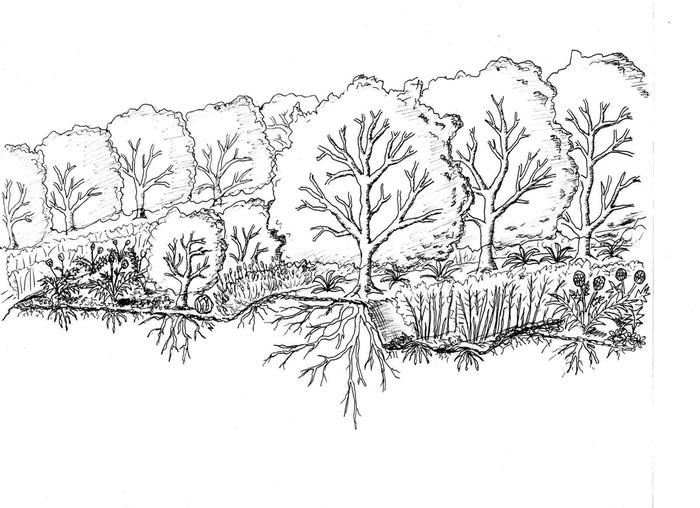wmthake wrote:
As for buying:
The price of land where I live is extraordinarily high. The whole region is set to become 60% urbanized. Most pieces of land are being sat on, waiting for zoning regulations to change so they can sell for building houses.
We talking like 15 euros for 1 square meter.
That's why moving and getting other people involved was part of my plan. Need to find a place with lower prices for land.
That's why renting at this point doesn't scare me. It's kinda like something is better than nothing.
William
Isn't that silly about people sitting on land hoping for some event to happen that will make them money? Over here, people still think there is lots of money to be made speculating in the housing market, even though so many people have gone broke recently doing just that.
Of course, this could be an opportunity in the making for an enterprising person such as yourself. While all those other people are building houses, you can be growing food for all those new people to eat.
You are probably right, renting would be a good way to get started, at least, then work towards buying. Even 1 acre (not sure what that converts to over there) of land can grow a considerable amount. Not long before we acquired our current land, we rented 3/4 of an acre, and grew a large garden, a dozen chickens, 9 turkeys, and 7 Nigerian Dwarf goats on it. The land was gravely, poor ground, and by the time we left, all the manure and
compost we left behind had made fertile ground out of what was basically a gravel pit.
We had to buy most of our feed, but we found sources for cheap organic feed, we just had to look around. We found one guy that raised organic grains, and he sold us pretty cheap grain so long as he didn't have to clean it real well, leaving the chaff on, and some weed seeds in it. Our animals didn't care one bit that the grains weren't super clean, and the chaff is good for them anyway. All in all, even with buying feed, the products we raised were still considerably cheaper than buying from a store, and were better all around.
Your networking idea is just what a small farmer needs. People working with each other, trading materials, labor, etc., can sure simplify things. For instance, we know of a gal who raises some goats, and while talking to her about possibly buying some does, she mentioned that if we didn't have a buck, she farms hers out to people who don't have one. What she does is loan it to people to cover their does, and all she asks is that they feed it. This way, at least part of its upkeep is done by others, and they get a stud service just for the price of a few days feed. Of course, the risk of disease is an issue, but it illustrates the point that what you say is a good idea. Bartering services and goods makes good economic sense.
One thing to maybe consider so far as land goes, around here a lot of the larger farmers only plant the areas reached easily with their large tractors, sometimes leaving large parcels in corners untended. Perhaps you could find parcels of this sort in your area, and possible use an existing irrigation system they may have for your crops. You may even be able to work out a sharecropping sort of thing with them, trading some produce for use of land they are not using anyway. It might work out and the cost could be minimal, or nil. Lots that others are sitting on waiting for the zoning change might be another option, maybe the people who own them would be willing to rent them for a time until the change happens. Another might be some sloped ground that someone else views as unusable. Our land here was considered unusable for farming, being mostly sloped ground, and the guy we bought it from thought we were weird when we said we were going to farm it, but he was probably thinking conventional farming using tractors and such. Fruit trees will grow on this sort of ground just as well as conifers, along with anything else, so long as the farmer doesn't mind doing a lot of hand work, then any ground you can walk on will grow something.
One permaculture principle is "Use edges and value the marginal", so taking advantage of others unused land might be a possibility.
I am sure you will find something that will work for you, it took years for us to find an affordable situation, we just kept looking.











































